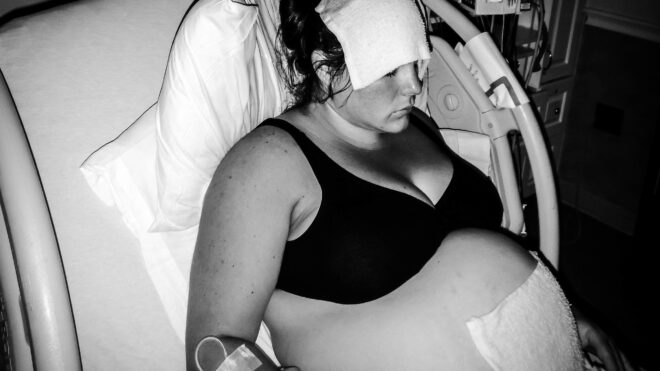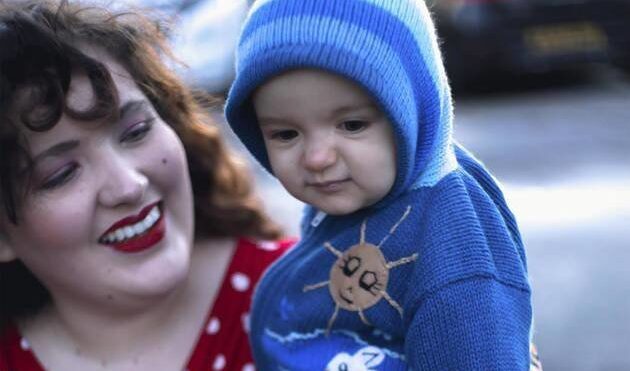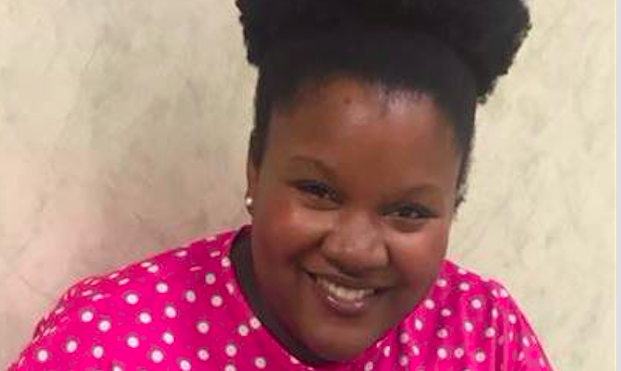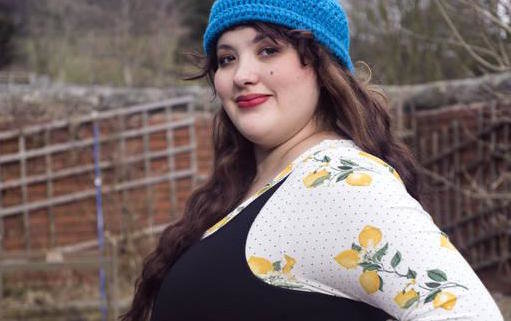
This article is part of a series dedicated to providing support and visibility to plus-size pregnant mothers. To read more stories, visit Plus-Size, Pregnant & Proud. To apply to join our private community on Facebook, click here.
“Do you mind?” a sales associate at a clothing store recently asked as she reached her hand out to feel my stomach. “Pregnancy is just so beautiful, isn’t it?”
Having one’s belly felt up by perfect strangers is likely a peculiar sensation for most expectant moms, but as a fat and pregnant person, I find it even stranger. My stomach — what is arguably one of the most visibly, undeniably fat parts of my figure — isn’t usually something perfect strangers want to touch. Rather, my body is avoided. My tummy and its fellow fat bits are heckled on the street. Doctors have pointed at it in disdain, asking why I’ve “let myself go” in such a way. Sales associates (at stores much like the one I was at on this particular morning) have looked at me and said, “There’s nothing for you here.”
When I’m pregnant, however, a lot of this changes. As my tummy grows rounder and harder, it becomes clear that there’s life growing within it. Suddenly, my body is given a temporary pass. I’ve often wondered whether this is because folks start assuming that I am only fat due to pregnancy, rather than out of “laziness” or “a fast food habit” or whatever other stereotype is often hurled at figures like mine. Maybe our innate fascination with human reproduction is just more all-consuming than our sociocultural fatpbobia.
Whatever the reason, there’s a distinct difference in the way my body is received by those around me when I’m pregnant versus when I’m just fat. It’s the reason I cannot help but cringe when usually-thin women around me chastise themselves for “feeling fat” as their bodies grow rounder and more obviously pregnant.
In truth, fat is not a feeling. It’s a lot of things, including a natural oily substance occurring in animal bodies (one needed to survive), and an adjective used to describe those of us with “extra” flesh beyond what is considered normal. But to be fat — the kind of fat that leads to constant harassment in public, to medical mistreatment, to endless cultural judgment, to death threats on Instagram simply for existing — is not a feeling. It's the reality of our lives. To occupy too much space in a world that doesn’t believe you should is not comparable to being bloated, or tired, or pregnant. It is not the same as putting on a few pounds when your body’s baseline is thought of as “thin” or “average.”
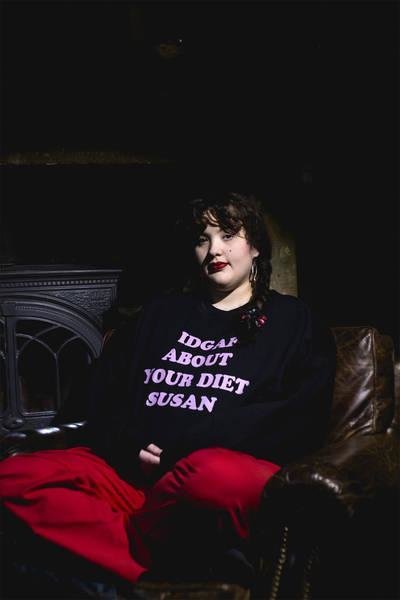
This is not to say that pregnancy, in particular, can’t be hellish. I’m on my second now, and as I enter my third trimester, every day feels worse than the one before it. There are moments when my back screams at me for simply getting out of bed. I wake up constantly in the night, even when my 14-month-old is sleeping soundly. I am emotionally and physically drained, and almost every other minute I find myself asking, “When will this finally be over?”
All of this is happening within me, though. Externally, the world is a much kinder place to me when I’m with child. When I’m “fulfilling my womanly role” or suitably contributing to the survival of the species, or doing a thing that so many people can’t help but celebrate for reasons I don’t quite understand. Sure, I still get fat shamed by my doctors and sometimes midwives. I’m reminded that my BMI puts both my child and me at risk, even though I have already had one healthy pregnancy and successful delivery. As for the rest of those around me, however, I mostly hear praise. I get told that I’m glowing. That I look happy. Beautiful, even.
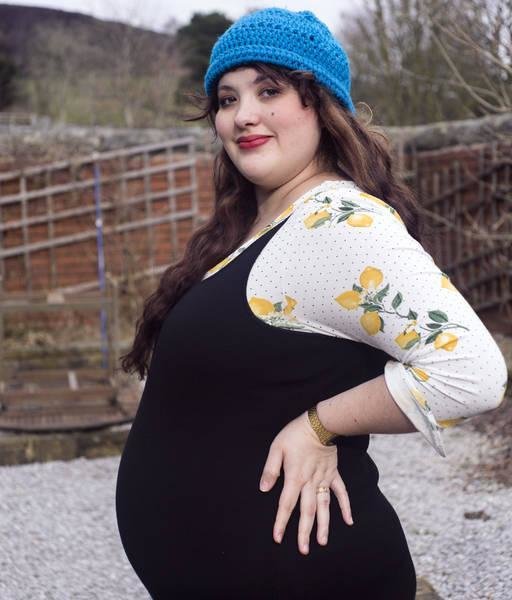
Experience has proven to me that this will change again when my second daughter is born. Once I’m not pregnant anymore, but just fat. Once my body is no longer cause for celebration, but rather faux concern. And although I’m prepared for that shift, it will still sting. The reminder that fatness, and fat people, are largely a source of condemnation and ridicule will always sting.
The thing is, though, fat bodies ultimately shouldn’t be punchlines or code for “I feel crappy.” We have the right to exist at peace with ourselves, and in ourselves, despite messaging that (intentionally or otherwise) suggests we do not; messaging like hearing someone who does not usually experience life in a fat body say, “I feel fat,” as her figure understandably changes through pregnancy, as she gains a few pounds.
Pregnancy weight gain looks different for us all, but there’s never a “right” or “wrong” way to experience it. We tend to be conditioned to believe that any kind of weight gain is “bad” weight gain, even as our bodies grow an entire other person inside them. We are conditioned to believe that any kind of fat is ugly, even when we feel perfectly content within our bodies. It’s a lot to handle, a lot to overcome, and a lot to actively walk away from or refuse to internalize.
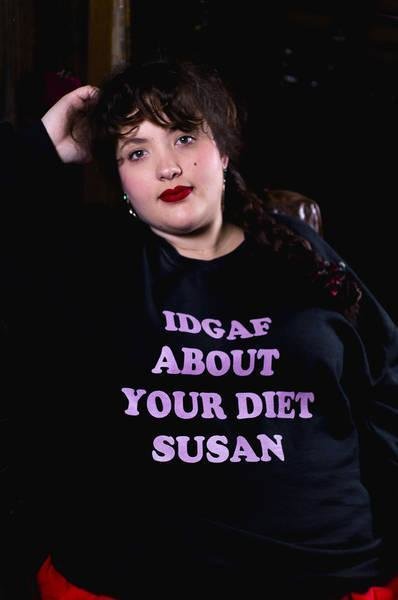
Perhaps a little bit of perspective is the first step. Perhaps, for thin or otherwise not-fat people, it begins with asking, “What do I really mean when I say ‘I feel fat’?” Or, “What am I saying about fat people when I use that word to shame my own body?” Or even, “Do those around me perceive my pregnant body as they do someone’s visibly fat one?”
Words matter, and oftentimes when it comes to fat stigma, the quickest way to make a difference IRL is to distance ourselves from verbal signals that communicate the notion that fat is always deplorable and worthy of shame. This doesn’t mean that pregnant women shouldn’t get real about their experiences. It doesn’t mean we shouldn’t be honest about how difficult these 40 weeks can be. We just don’t have to tear down entire groups of people while we’re doing it.
FEATURED VIDEO:

